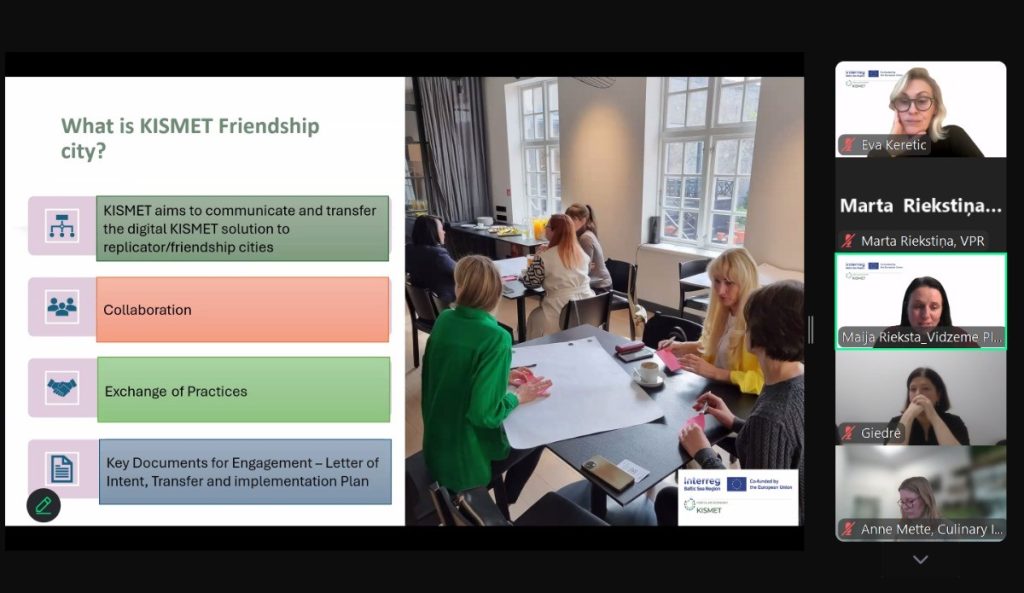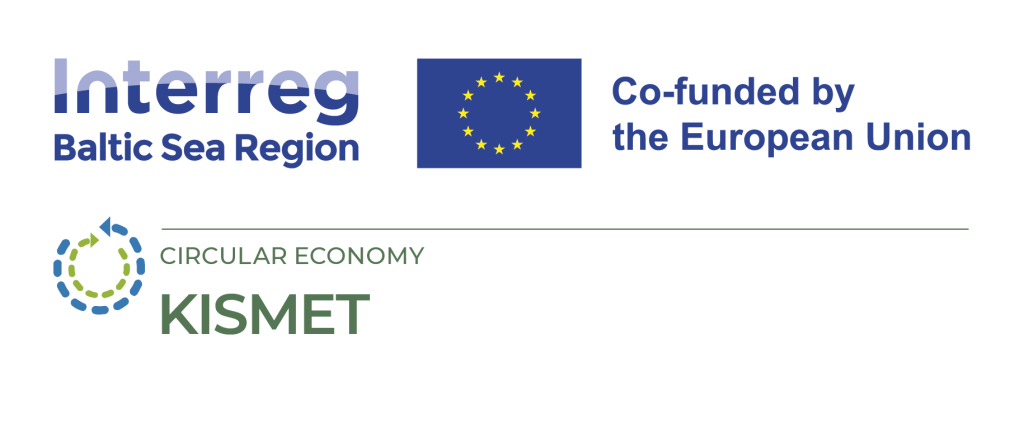At the end of January, as part of the Baltic Sea Region cooperation project KISMET, Vidzeme Planning Region organized a meeting with the project’s replicator cities. The online event brought together cities and municipalities committed to promoting and strengthening sustainable food systems and international cooperation by adopting the experience of the KISMET project partnership in food system development. The participating cities included Copenhagen (DK), Hedensted Municipality (DK), Kazlų Rūda (LT), Cēsis Municipality (LV), Ekerö Municipality (SE), Eira Municipality (FI), and the city of Iisalmi (FI).
During the meeting, participants gained in-depth insights into the goals and activities of the KISMET project, which partners have implemented to support the strengthening of sustainable food systems in their cities or regions. Meanwhile, the partner cities introduced their previous initiatives and projects and expressed interest in specific aspects of the KISMET project that they would like to adopt in their own cities.
The event provided an opportunity to share experiences and perspectives on sustainable food initiatives, contributing to the development of a stronger and more sustainable food system in the Baltic Sea region.
As part of the project, partners have tested and are now offering the following sustainable food system concepts for replicator cities to adopt:
- Co-creation model for developing food strategy (Latvia, Finland, Germany, Denmark);
- Development plan for quadruple helix network activities (Latvia, Germany, Sweden, Denmark);
- Motivating decision-makers by key numbers (Finland, Lithuania, Estonia);
- Optimizing communication strategies (Sweden, Finland);
- Awareness about food waste (Estonia, Finland);
- Promoting sustainable food choices (Denmark, Germany);
- Food education: Building competence in public catering (Latvia, Denmark);
- Guide to procurement of locally produced food (Sweden);
- Seasonal pyramid (Lithuania, Finland);
- Platform for local producers (Finland, Sweden, Estonia);
- Matchmaking for plant-based food producers (Denmark).
Although the concepts developed by KISMET are freely available to any city, region, or other interested parties on the website https://kismet-project.eu/, partner cities have the opportunity to adopt and test these concepts in their territories with support from project partners during the project period.
The partner city from Latvia is Cēsis Municipality, which will draw inspiration from the project partners and the food education concept by organizing informative and educational masterclasses for those involved in school catering in Cēsis Municipality.
“We are delighted to see so many cities and partners willing to collaborate and promote a more sustainable future. The KISMET project is a powerful tool that brings together experience, innovation, and international cooperation to create more resilient food systems,” emphasized the event organizers.
Additional information about the KISMET project and its activities is available on the project’s official website: https://kismet-project.eu/.


